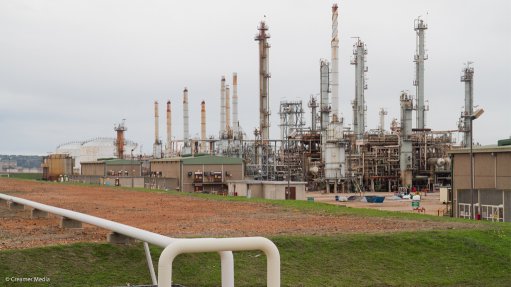
PetroSA's gas-to-liquids refinery in Mossel Bay
Photo by: Duane Daws
The board at the Central Energy Fund (CEF) announced on Thursday that it had rescinded the contentious appointment of Tshepo Kgadima as a director and chairperson of National Oil Company, PetroSA.
PetroSA is a subsidiary of CEF, which manages various energy interests on behalf of the government.
CEF chairperson Dr Sankie Mthembi-Mahanyele indicated that the it would be “impossible for Mr Kgadima to carry out the responsibilities of the chairperson of PetroSA effectively” in light of the controversy surrounding him.
Kgadima has been accused of defrauding investors in LontohCoal and was recently escorted out of the offices of Business Day after he confronted the newspaper's editorial staff for reporting on his controversial past and for raising questions about his suitability for the role of PetroSA chairperson.
“The primary interest of the board is to ensure that all entities in the group are stable, well-managed and focused on CEF’s primary role which is to contribute to the country’s security of energy supply,” Mthembi-Mahanyele said in a statement.
Nonhlanhla Jiyane had been appointed as interim PetroSA chairperson and Mthembi-Mahanyele said existing vacancies on the PetroSA board would be “filled in the near term”.
In October, PetroSA reported that it had produced 14% less refined product in 2013/14 than budgeted, owing to diminishing gas feedstock. The State-owned group also warned that inadequate feedstock would remain a constraint on its future performance.
The company produces 5.8-million barrels during the year at its Mossel Bay gas-to-liquids (GTL) refinery, which had a nameplate capacity of around 15-million barrels.
The group had embarked on a cost optimisation initiative that would seek to realise R1-billion a year in permanent cost savings.
The company reported a 12% increase in revenue to R21.2-billion during the year, as well as a R2.2-billion operating profit. But it reported a net loss of R1.65-billion, owing to a R3.4-billion impairment charge against its onshore and offshore assets.